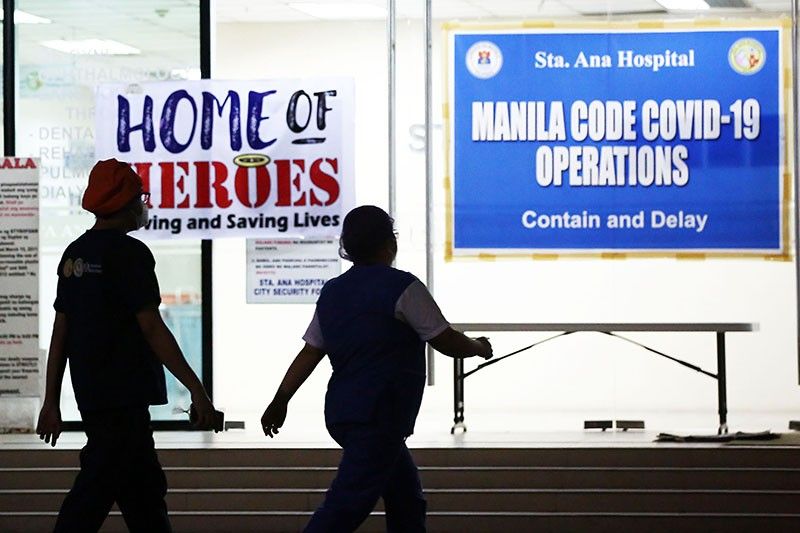Commentary: New breed of Filipinos emerges from COVID-19 crisis

It’s been more than three months since the world has started talking about the novel coronavirus—now known as COVID-19. For Filipinos, though, the sudden awareness by the majority came when the government declared a lockdown in March, about a month ago.
The pandemic and everything related to it have dominated the news—whether on newspaper, TV, radio or even social media. That does not seem surprising. And with much time to spare for people who are at home and are restricted by the enhanced community quarantine (ECQ), this has become a golden opportunity for them to flex their sense of being involved.
There is a considerable increase in the number of individuals who have become active in social media—from prolific sharers, closet analysts and even rambling opinion-makers. And that is a good sign, generally speaking. What ruins this mechanism toward a more participative democracy are those who sell their voices to the highest bidder--the internet trolls, the bearers of fake news and the opinion mercenaries.
Typically, after a while, the topic becomes common. Like a story of a dog biting a man—as opposed to a man biting a dog—the stories and opinions start to lose their novelty, leading people to once again fall into a sense of boredom.
But, while we are riding high on this trend, there are many national issues that we need to consider—those that will affect our post-pandemic lives. Having quality scenario-based contingency plans and protocols will always trump reactionary, trial-and-error, one-track-minded decisions.
For example, the government announced financial assistance to people in the amount of P8,000. Better than nothing, right? The problem that has surfaced, however, is the distribution.
As it turns out, this is not for everyone, something that was not made clear in the original announcement. The lingering issue now is who is assuming the responsibility of choosing which families to get the assistance? The national ID system, for all the risks involved, may have saved us from this brouhaha. The key is to improve the security of the system and the public trust in it.
It would have been closer to ideal if we can develop standing plans or protocols. Then, we would only need to fine-tune them as necessary.
Though painful and seemingly unfair, doctors have to decide on the spot which COVID-19 patients get ventilators and, therefore, a fighting chance to live. But the field of medicine has established protocols to determine answers to these dilemmas.
On the other hand, is the government ready for the scenario when the world discovers a vaccine or a cure? It may be realistic to expect a temporary shortage of these medicines at the early stages. Who will get the priority? Are the procedures in the Department of Health in place? Or would we need days of task-force meetings to resolve the matter?
These issues, together with other big-ticket concerns, such as economic recovery including enhanced poverty-alleviation measures need to be discussed now. Even discussions on non-economic matters such as the need and mechanisms for social distancing after the pandemic should be relevant now.
Even in the private sector, many challenges have surfaced that have not been addressed in previous discussions. Will companies finally agree to work-from-home arrangements? Will business-continuity protocols be taken more seriously now? The education sector is one of the most-affected areas. How should learning continue during times when physical classroom meeting becomes impossible during trying times?
It is now time to engage in these discussions while we see a surge in active participation from a growing breed of Filipinos who have stepped up to the challenge of nation-building at this critical time. We must also pay tribute to the men and women who have generously shared their resources to the most vulnerable.
Praiseworthy is the speedy mobilization and implementation of Project Ugnayan led by the top business groups from different industries. In cooperation with the Philippine Disaster Resilience Foundation and Caritas Manila, priests and volunteers going house-to-house distributed P1,000 grocery gift certificates and food to the poor communities of Greater Metro Manila.
Distribution channels were further expanded in partnership with ABS-CBN’s Pantawid ng Pagibig program, the Asian Development Bank and the government’s “Bayan Bayanihan!” and Jollibee’s FoodAID program.
In sum, Project Ugnayan will have given P1.5 million families much needed food assistance or if we assume five members per household, that’s over 7.5 million individuals in the difficult first weeks of the ECQ.
This project underscores a shining example of public-private cooperation and all society approach to the raging crisis. The administration is better off shedding its populist stance of us versus them—the poor versus the rich. At this point, any attempt to generalize and vilify big business as enemies of the people is not only counter-intuitive but also counter-productive.
As early as now, the post-pandemic Philippines and the rest of the world are seen as going to change how we do things. For us here, my biggest aspiration is that we rise from the ashes with a real concept of a nation, with a united yearning for better governance, and with a responsible leadership that genuinely cares for the Filipinos.
Edwin Santiago is a fellow and member of the editorial board of think tank Stratbase ADR Institute.
- Latest





























